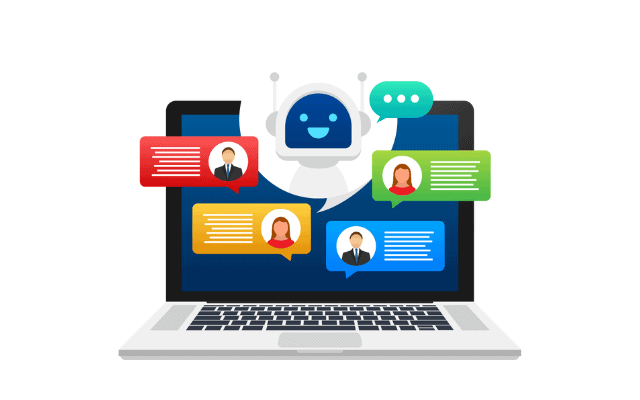Thinking of leveraging AI bots in your business, but still on the edge? You are right to be. Before you proceed, you need to have this question explicitly answered:
Are bots good for business? Or better yet,
Are AI bots good for your business?
In this short read, I take you through some of the reasons why you need to deploy chatbots in different facets of your business, as this can help customers get instant responses, as well as aid your team to be more productive, get more done, and even improve user experience.
But first, let’s answer the foundational question:
What are AI chatbots?
AI chatbots, also commonly referred to as “AI bots“, are software applications powered by artificial intelligence (AI) that can simulate conversation with users in a natural language.
They can be embedded on websites, mobile apps, messaging apps, or other platforms.
Here’s a brief overview of how they work:
- Functionality: AI bots interact with your users, understand their questions or commands, and provide appropriate responses or actions. This is achieved using natural language processing (NLP) capabilities, which enable the bot to interpret and process human language
- Learning: Unlike traditional rule-based bots that follow a set script, AI bots can learn from past interactions. This is made possible by Machine Learning algorithms. The more data they’re exposed to, the better their responses become
- Integration: AI bots can be integrated with various databases and services, allowing them to pull real-time information, conduct transactions, or even control other software applications
There are several ways you can leverage AI bots to make money, but one way is to improve your business operations.
Ready to implement AI bots for your business?
Grab Re:tune AI chatbot builder, a lifetime deal for just $59 for a limited time. In doubt? Just click the button below to explore more on Appsumo.
Are bots good for business?
Yes, AI bots, when implemented correctly, can be great for your business as they help you automate most aspects around customer engagement and support.
With 24/7 availability, your clients will always get timely responses to their queries
Bots can also handle routine tasks efficiently, freeing up your team for more complex issues.
You can also use AI-powered tools to analyze large data sets quickly, helping you make informed decisions that pertain to your business.
Key benefits of chatbots for businesses
Let’s now discuss some of the advantages of chatbots and AI tools in detail below:
1) Round-the-clock customer support
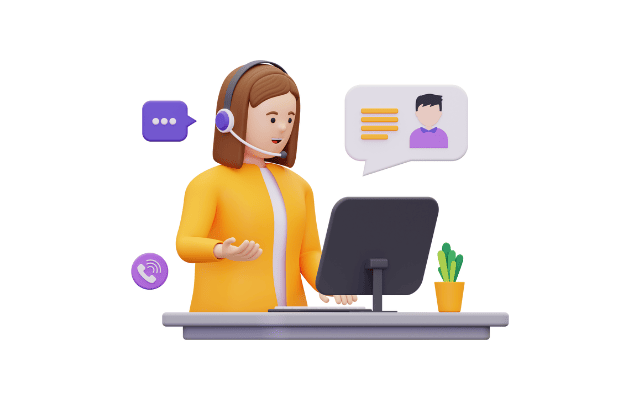
Running a global business, often means that you usually have inquiries coming in outside of the designated business hours.
Now you get to have a customer service department that never sleeps.
Bots can operate non-stop, ensuring that there’s no downtime in responding to customer inquiries.
Self-service customer support becomes possible.
Unlike human agents who might need to work in shifts or take breaks, bots can maintain a consistent service level day and night.
This is key in order to improve customer satisfaction and reduce churn in your company.
2) Save on operational costs

Staffing is expensive.
Consider the expenses associated with hiring, training, and maintaining a team for tasks like answering frequent customer queries and requests or processing routine orders.
Chatbots can help businesses handle these these tasks at a fraction of the cost, with their intent-matching capabilities.
For example, an eCommerce business can leverage chatbots to answer customer questions such as:
- Product availability
- Shipping details
- Return policies, and
- Ongoing promotions
These automated assistants can provide instant responses, freeing up customer service representatives to handle more complex inquiries.
3) Product recommendations
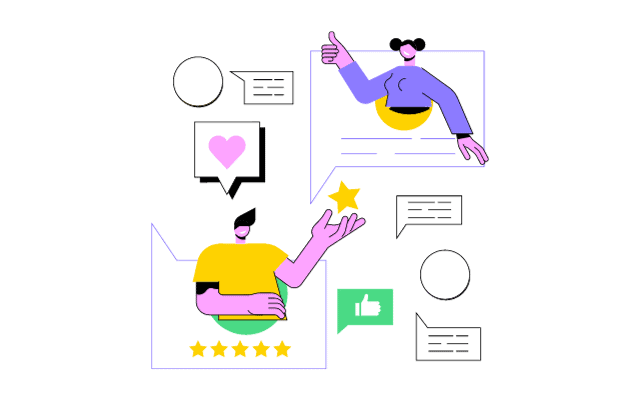
With advancements in AI and machine learning, chatbots can provide personalized product recommendations based on browsing history, enhancing the user experience and increasing the potential for sales.
This not only improves customer satisfaction but also streamlines business operations, reducing operational costs in the long run.
Look at these AI bot example responses:
A customer asks the AI for a book recommendation:
AI Chatbot: "Based on your recent browsing history of mystery novels and your purchase of 'The Girl on the Train', I'd recommend 'Big Little Lies' by Liane Moriarty. It's a gripping mystery with strong character development. Would you like to add it to your cart?"
A customer adds an item to a cart:
AI Chatbot: "Thank you for choosing the LuxeLush Hydrating Shampoo! 🌸 Many of our customers pair it with the LuxeLush Nourishing Conditioner for optimal results. It enhances the moisturizing effect and leaves hair feeling even softer. Would you like to add it to your order and achieve the complete LuxeLush hair care experience?"
I mean, who can say no to that?
4) Scalability and volume handling
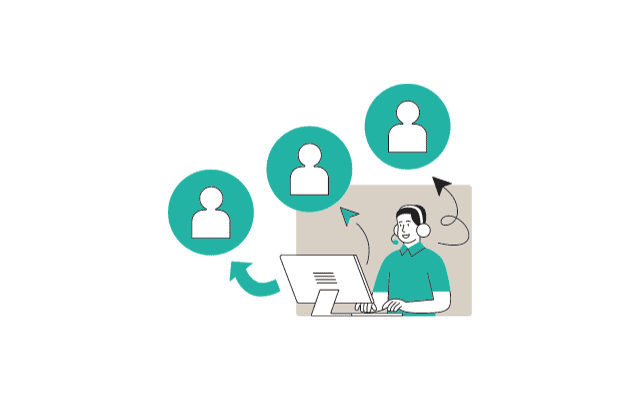
Another great benefit of chatbots is scalability. During peak times, like Black Friday sales, businesses see a surge in customer inquiries.
Hiring more agents for short durations isn’t cost-effective. Bots can manage high volumes of such repetitive queries, ensuring no customer waits too long.
Another advantage is that bots can simultaneously manage multiple inquiries from different users. Your prospects and customers no longer have to wait in line to be connected to a live agent for basic customer requests, as this can be automated.
5) Gather and analyze customer interactions for insights

Bots can quickly sift through large datasets.
By analyzing interactions over extended periods, they can spot emerging trends or patterns in customer behavior.
For instance, if a bot notices a spike in queries about sustainable products, it might hint at an increasing consumer demand for eco-friendly options.
These chatbots can also help you identify gaps in your retail portfolios and product messaging.
If customers are repeatedly asking about a specific product or feature, it’s an indication of a potential gap in your information dissemination.
6) Reducing cart abandonment
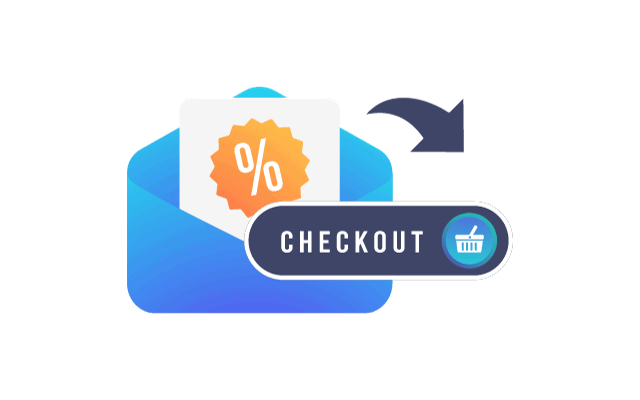
Bots can be used to reduce cart abandonment and thus boost sales.
You can program e-commerce bots to understand when a user is likely to abandon a cart.
By analyzing actions like prolonged inactivity or browsing away from the checkout page, bots can intervene with timely reminders, discounts, or assistance, turning potential drop-offs into conversions.
If a user does end up abandoning their cart, AI-powered bots can send personalized follow-up messages, suggesting related products or exclusive discounts to entice the customer back.
This automated, yet personalized intervention streamlines the shopping experience, making it more likely for customers to finalize their purchases.
Just get the messaging right and the systems working, and you’ll win every time.
7) Integration and automation
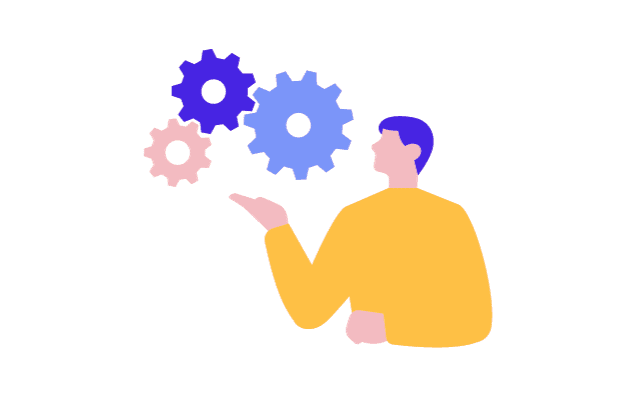
Leverage AI bots to offer real-time, accurate information to your customers without manual intervention.
For instance, if a customer inquires about the availability of a product, the bot can instantly pull data from the inventory system and provide the current stock status.
Similarly, when someone wants to book an appointment or service, the bot can access the scheduling system, show available slots, and book the desired time, all within the same interaction.
Another cool use-case concerns order-related queries. The bot can instantly fetch and display the current order status, shipment tracking, or estimated delivery time.
This seamless integration not only enhances the customer experience by offering quick and accurate responses but also reduces the workload on human agents.
This synergy between bots and business systems elevates operational efficiency and ensures consistency in customer interactions.
Benefits of chatbots for customers
Your prospects and customers get to have amazing customer experiences, especially pertaining to critical aspects such as:
- Instant support: Provide immediate responses, enhancing customer satisfaction
- Multilingual reach: Chatbots help businesses expand global audience coverage with multi-language support
- Personalization support: With artificial intelligence, you get to tailor interactions based on user history
- Reduced wait times: By leveraging chatbots, your business gets to handle multiple queries simultaneously, reducing customer wait times
- Easy navigation: Direct customers quickly. Guide them to relevant products, services, or information effortlessly
Challenges of AI bots for businesses
However, there are also potential drawbacks to consider:
- Limited understanding: Bots can struggle with complex or nuanced inquiries, potentially frustrating customers.
- Impersonal interactions: Some customers prefer human interaction, finding bots impersonal or less empathetic.
- Implementation challenges: Poorly designed bots can lead to negative customer experiences. Proper design, testing, and iteration are crucial.
- Potential misinformation: If not updated or programmed correctly, bots might provide outdated or incorrect information.
Types of chatbots for businesses
Now, there are different types of chatbots that you may need for your business. You want to choose the ones that make the most sense for your offering and implement them.
AI bots, given their underlying technology, can be categorized based on functionality, learning mechanisms, and application areas. Here are the main types of AI bots:
- Conversational AI bots:
- Functionality: Simulate human-like text or voice conversations
- Use: Customer service, virtual assistants, and user engagement
- Examples: Google Assistant, Siri, and customer support bots on websites
- Transactional bots:
- Functionality: Perform specific tasks or transactions
- Use: Booking tickets, placing orders, or executing financial transactions
- Integration: Often tied to business systems or databases
- Informational bots:
- Functionality: Retrieve and provide specific information
- Use: News updates, stock market data, or weather forecasts
- Predictive bots
- Functionality: Analyze historical data to make predictions
- Use: AI stock trading advice, demand forecasting, or predictive maintenance
- Recommendation bots:
- Functionality: Suggest products, services, or content
- Use: E-commerce product suggestions, movie or music recommendations
- Examples: Recommendation systems on platforms like Netflix or Spotify
- Navigation bots:
- Functionality: Assist users in navigating through digital spaces or physical environments.
- Use: Site navigation, robotic vacuum cleaners, or drones
- Monitoring and alert bots:
- Functionality: Monitor data streams and send alerts based on criteria
- Use: Monitoring server health, stock price thresholds, or social media mentions
- Learning bots (Reinforcement Learning):
- Functionality: Adapt and improve performance based on feedback
- Use: Game playing (like AlphaGo), robotics, and optimization problems
- Collaborative bots (Cobots):
- Functionality: Work alongside humans to enhance tasks
- Use: Manufacturing, surgery assistance, and interactive training
- Social media bots:
- Functionality: Operate on social platforms, both for benign and malicious purposes
- Use: Automated posting, content amplification, or fake account interactions
While these types of bots provide a broad overview, it’s essential to understand that many AI bots can be hybrid, combining features from multiple types.
The rapid advancements in AI and machine learning continually bring about new bot functionalities and categories.
Conclusion
In conclusion, while bots can be an asset to many businesses, their success largely depends on their design, implementation, and specific use cases.
It’s often beneficial to combine bot and human interactions, ensuring customers receive efficient personalized support.
So should you use bots to run some aspects of your business? Definitely yes, but do so with a clear and strategic implementation plan.
